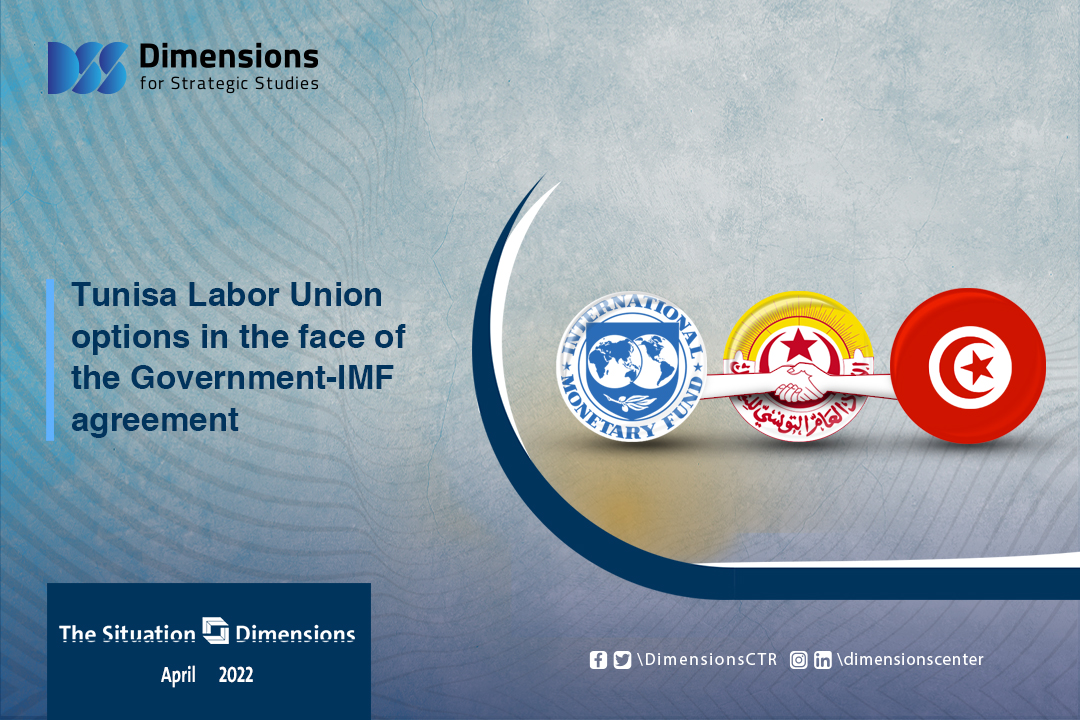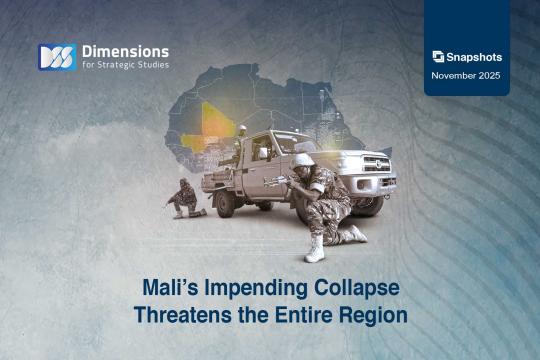
Tunisa Labor Union options in the face of the Government-IMF agreement
2022-04-111812 view
The economy minister, Samir Saied said that a Tunisian delegation will travel to Washington mid-April for holding technical negotiations with the International Monetary Fund (IMF). The minister confirmed that the economic reform plan requested by the IMF is ready.
Such talks come after the delegation of the IMF visited Tunisia more than once in the previous months, as the government is seeking to reach a loan deal with the Fund to bridge its budget deficit and save the economic situation, especially with Tunisia having no wide borrowing options after it was classified as a high-risk credit state.
The Tunisian General Labor Union (UGTT), which is the largest union organization in Tunisia that supports the exceptional measures taken by President Kais Saied, believes that the conditions imposed by the IMF as requirements for reforms are painful and harmful for the Tunisian society; due to high unemployment, eroding purchasing power of Tunisian citizens, and an increase in the general level of prices.
The UGTT, which defends the rights of the working class, clashes with the government not only because it has no clear roadmap for these reforms; but also because it seeks to obtain the loan, whatever it takes.
The Prime Minister expressed her anger at the UGTT's proposal in a phone call with the union's Secretary General, Noureddine Taboubi, after the meetings the latter had with the International Monetary Fund team to present the union’s vision.
The UGTT is trying to negotiate with the government about raising wages and ensuring a minimum level of public sector employment in the coming years, which seems to be rejected by the government for now.
Moreover, the UGTT considers that there is a long-term threat if the agreement is reached with the IMF, as the current one will show the union as a weak party that is unable to protect the rights of the working class. This might push the union to call for taking to the streets in order to reject any agreement that does not take its demands into account. This, in fact, helps the UGTT to show its determination that it no longer gives up the mission for which it was established, even if this might lead to angering the president and the ruling system that supports him on the one hand, and if it appears that the union temporarily abandoned achieving the goal of those in charge to target the Islamists on the other hand.
The IMF seeks to involve the UGTT in the negotiations, as a tool for putting pressure on the government and making the Fund’s actions popular and legitimate. This is a strong point that the union really has and can benefit from in the coming stage to persuade the IMF to include the union’s demands.
As such, negotiations between the UGTT and the IMF may be taking place at the same time as the IMF is seeking a dialogue with the government. Those two tracks will be the only potentially successful options for the union to block demonstrations rejecting the agreement. This will be in alliance with other union forces.





